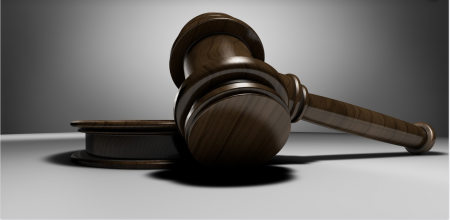by Contributor
(Sep. 17, 2021) — The criminal trial process can be long and complex. When facing a criminal charge, it’s important to know how to prepare for the trial process. The first step is deciding if you should even go to trial at all! It might make sense for some people who are charged with crimes, but not others. For those who choose to go through the trial process, there will be many steps along the way that they must take care of before and during their day in court.
Prepare for the trial by contacting an attorney.
A trial is a very serious process, and you should always trust a criminal attorney handling it. They will make sure that you:
– Follow all applicable laws and rules.
– Get properly subpoenaed for court dates.
– Have the right evidence to present when your day in court arrives.
Without an attorney, you could miss out on opportunities or break the law by accident!
Gather evidence and organize it into a timeline
One of the most important things you can do to prepare for a trial is to gather evidence and organize it into a timeline. It will help both your attorney and the judge see all of the facts in order, making it easier for them to understand what happened. Your evidence could include:
– Photos that show damage or injuries from an incident
– Medical records of any injuries
– A recorded statement from a victim or witness who has moved away.
It is also important to show what happened, if it happened recently, or by using medical evidence for incidents long ago.
Get ready to testify by practicing your testimony with your lawyer.
One of the most nerve-wracking parts of a trial is when you have to go up and testify. Even if your lawyer has done all the hard work for you, it’s still important to practice what they want you to say so that it comes out right on the big day!
For example, your attorney might instruct you to say that you were “very scared” when your friend got into a fight. However, if the person who attacked your friend is in court and listening to what you’re saying, it might be better if you said instead that they made you feel “uncomfortable.”
Understand what you are up against – know what each side will say about you, the other witnesses, and the crime scene.
It’s important to understand what the other side might say about you, your friend who was attacked, and even the location of where it occurred. It is why gathering evidence beforehand can help – because if they do something that surprises you on the stand or makes up new information out of thin air, then at least you’ll be able to show the judge that they are lying!
Be prepared to be cross-examined by opposing counsel.
If you are testifying, make sure you stay calm and not get defensive when the opposing lawyer cross-examines you. Stay confident in your answer even if they ask questions that make it sound like what happened never happened – because sometimes lawyers will go through a lot of different scenarios to see how well their witnesses can handle the pressure!
Know how difficult it is to get a conviction without physical evidence; juries often rely on circumstantial evidence
Trial juries often rely on circumstantial evidence, such as the circumstances around how events occurred rather than what exactly happened. For example: if you were involved in a fight and your friend’s injuries required stitches, that is direct evidence of an assault occurring during a disagreement between two people. However, it can be very difficult to get a conviction without physical evidence or eyewitnesses because circumstantial evidence is often incomplete and can be misleading.
Conclusion paragraph: It’s not easy to get through the criminal trial process, but it can be done. With an experienced attorney and a strong support system, you should be able to make it out on the other side in one piece. Just remember that there is light at the end of this dark tunnel!



Great article.